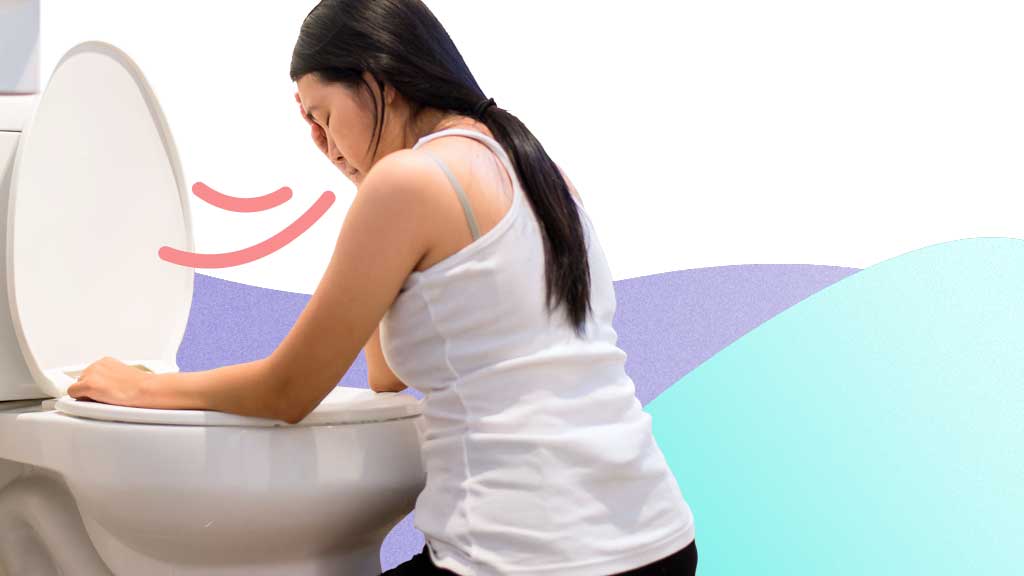During pregnancy, the body changes in many ways. The physical and hormonal changes that accompany each trimester can cause not only physical discomfort but also many mental and emotional challenges. Yet, for the most part, these changes are entirely organic and normal.
As Kazemi et al. (2017) point out, pregnancy is a special condition that is neither a disease nor a normal body status, yet the minor ailments that may accompany the journey from conception to birth can significantly impact quality of life.
Most of the discomforts associated with pregnancy are not dangerous, just a normal part of the body’s adaptation to the stresses caused by a growing fetus. These can lead to metabolic, hormonal, cardiovascular, respiratory and musculoskeletal adaptations known as minor ailments in pregnancy. Fortunately, most of these can be ameliorated with simple remedies and self-care advice.
Some of the more common minor physical ailments or disorders of pregnancy include:
- Nausea and vomiting
- Heartburn
- Constipation
- Food cravings and aversions
- Backache
- Leg cramps
- Leg oedema
- Urinary frequency
- Vaginal discharge
- Pruritus
- Skin changes
- Varicose veins
- Haemorrhoids
- Carpal tunnel syndrome
- Fatigue
- Mood changes.
(Better Health Channel 2022)
Psychological Changes and Challenges
In addition to these common physical changes, many people also experience profound psychological changes as they prepare for parenthood. As Kazemi et al. (2017) describe, pregnancy takes a patient on a journey from uncertainty and hesitation towards a sense of vulnerability and mental preparation for the baby’s birth. For many people, changes to their body image may also negatively impact their self-image and sex life.
Five Key Areas of Change
Although there are many potential ways to categorise the minor ailments of pregnancy, Kazemi et al. (2017) suggest the following five categories, which all revolve around disorders affecting quality of life:
1. Psychological Disorders of Pregnancy
Although psychological disorders receive less attention than physical ailments, they can still have a profound effect on quality of life if they go unrecognised. Poor memory, feelings of boredom and negative thoughts are all psychological issues that have been flagged by recent research.
Many patients also report becoming more impatient during pregnancy and having more sensitive and instant reactions in response to the behaviours of others. Sleep disorders have also been reported by many. Examples include an increased tendency to sleep, lack of continuity of sleep, insomnia and inability to fall deeply asleep.
2. Body Image Disorders
As Kazemi et al. (2017) discovered, some people also suffer from body image disorder during their pregnancy, causing a decrease in self-esteem. Concerns about becoming fat, or feelings of shame about their changing appearance also lead to negative feelings about obesity. Skin changes such as acne, chloasma and stria may cause some people to feel unattractive despite these being natural body changes.
3. Disorders in Sexual Wellbeing
Another common complaint is how pregnancy can negatively affect sexual function and wellbeing. Many people report decreased frequency of sexual intercourse due to physical pain, fear of harm to the fetus and limited comfortable positions as the pregnancy progresses. For some people, this means forgoing sex altogether, which may have a negative impact on their life. For others, these changes to their sex life also lead to feelings of low self-worth, low morale and increased concerns about trusting their partner (Kazemi et al. 2017).
4. Disorders of Daily Activities
Kazemi et al. (2017) also discovered that many pregnant patients experience conflict with their employment as their pregnancy progresses. Typically, this includes negative emotions about how their working conditions might affect the health of the fetus, and loss of interest in their work. The need to reduce leisure activities and housework is also a common finding as pregnancy progresses.
5. Physical Disorders
Physical changes such as those mentioned above are the most commonly reported minor disorders, with genitourinary and gastrointestinal disorders being among the most common complaints.
Encouraging Self-Care
Most of the minor disorders during pregnancy can be minimised with good health education and prompt treatment. However, as many people tend to get their information from the internet, pregnancy apps and social media, midwives and maternity nurses may be left wondering how to ensure that patients are getting good quality advice and know when to seek further help.
Despite the popularity of social media and online learning, face-to-face consultations still have an important role to play in helping patients recognise when to seek help for any abnormal symptoms during pregnancy.
Good Antenatal Education is Key
As Agampodi et al. (2013) suggest, good antenatal care and health promotion strategies still remain the best way to provide comprehensive, good-quality maternal health care.
It’s an obvious point but one reinforced by Gamel et al. (2016), who demonstrated that providing pregnant patients with a self-care brochure for the relief of minor ailments was associated with a high degree of relief compared to those who only received verbal reassurance.
Likewise, Hassan, et al. (2020) demonstrated that providing a simple educational program on pregnancy ailments resulted in significant levels of self-care knowledge along with a corresponding lowering of anxiety levels.
Awareness of Abnormal Signs
Amasha and Heeba (2013) suggest that the question, ‘Are pregnant people aware of normal and abnormal signs of pregnancy?’ would be a valuable topic for further research. Kazemi et al. (2017) also highlight the need for new research in this area, suggesting that information about the changes experienced by pregnant patients in physical, psychological and social areas is currently limited and requires more attention.
Midwives also have an important role to play by asking patients more open-ended questions and inviting more inquiry about what is and is not normal. Despite the rise of video and online support, there still seems to be room to create further innovative ways to engage with patients and increase their knowledge about the minor discomforts of pregnancy and the self-care practices that can be used to bring relief.



 New
New 

